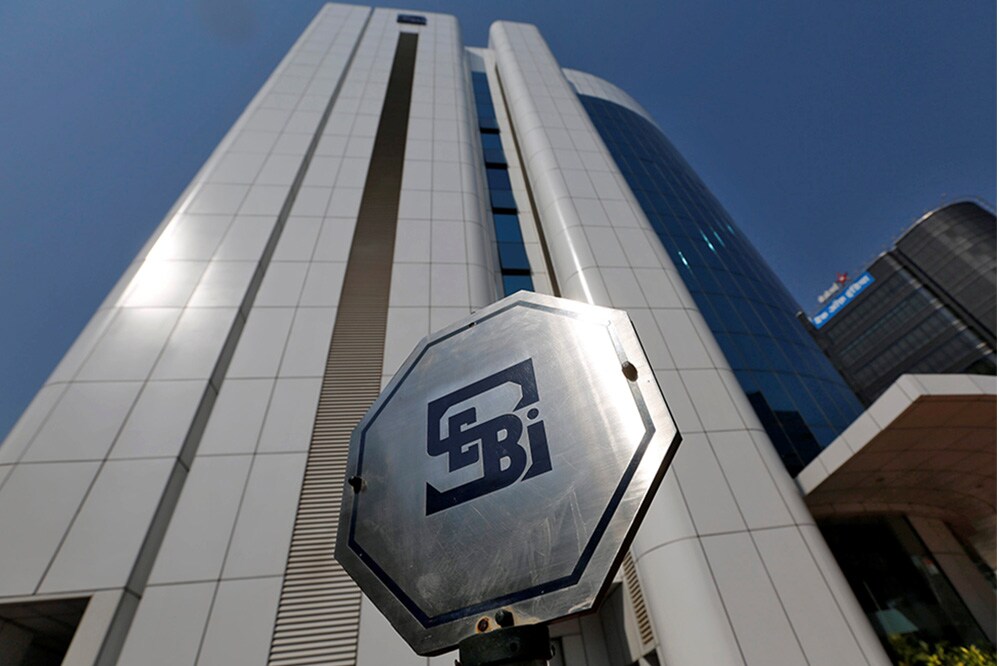Shell companies' list serves as a warning to retail investors in bull markets
Promoters of these shell companies should be punished and not investors, say experts



Image: Shailesh Andrade / Reuters
Just a week ago it seemed that nothing could go wrong with the almost overpowering euphoria which prevailed at India’s equity markets. The markets had risen 23.06 percent in the calendar year 2017, with the Nifty 50 index closing at a record 10,066 points on August 4, 2017. Within a week from that high, the sentiment is turning bearish and there is nervousness, with the Nifty 50 index losing 3.66 percent in that period.
One of the factors which hit the markets like a jolt has been a recent move from the market regulator. Investors are not happy with the fact that the Securities and Exchange Board of India (Sebi) sucked liquidity out of 162 companies out of the total 331 suspected shell companies after placing them in the stage VI of the graded surveillance measure.
These securities are now included in the trade-to-trade category and trading will be permitted in these companies only once a month. Any upward price in these securities will not be permitted beyond the last traded price and buyers will have to submit additional deposits. Investors feel that they are being punished when they have not done any harm.
“We also have to look at the positive side. This is commendable. A lot of retail investors were wrongly being advised or lured into investing into penny stocks or companies which may not have any genuine business operations. With this list, Sebi has created awareness and it has made people think twice before investing into these companies which is a commendable job,” says Abhimanyu Sofat, Vice President, head of research, IIFL – Premia.
Others feel that some of the companies in the list have genuine businesses and they are being punished. "The regulator should go and visit each and every company individually and find out if these companies are shell companies or not. As of now these are just suspects. These companies need to be investigated. If there are no employees and no services in those companies then why keep them listed at all," said a fund manager who feels that there is no doubt that the list of companies that has been released will have some problem or the other.
The fund manager feels that these companies should be stopped from trading and delisted as it will help protect a lot of retail investors who take unsolicited advice from experts or advisors who are not registered with Sebi.
According to a Firstpost analysis, out of the 69 listed stocks whose data is available, there are three big companies where the market capitalisation as on August 7, 2017 stood at over Rs 1,000 crore -- J Kumar Infra has a market capitalisation of Rs 2,146 crore, Prakash Industries (Rs 2,120 crore) and Parsvnath Developers (Rs 1,020 crore). As many as 13 companies had market valuation between Rs 100 crore and Rs 601 crore and 32 companies between Rs 10 crore and Rs 87 crore. There were 21 firms with market capitalisation below Rs 10 crore. Prakash Industries and J Kumar Infra are two companies where the Securities and Appellate Tribunal (SAT) has stayed Sebi’s orders.
This has been a huge relief to the shareholders of these companies. J.Kumar Infra is the only company where the institutional holdings is at 39 percent.
"No matter what happens the penalty has to be on the companies and not to the investors," said an irate investor.
Indian promoters do not like delisting a firm even when the business fails. There are many companies in the list that were the darlings in previous year during the software boom and later on in the infrastructure boom. Over a period of time the businesses failed to deliver. But the promoters of these companies did not delist them. And that itself is a reason for suspect. At times these companies were also marketed as comeback stories to retail investors, the fact was that there was no business.
“Sebi should come out with an official definition of shell companies. There are ten-odd companies that have genuine operations. So they have assets and operations. According to Sebi, there is no definition for a shell company. So how they have created this list is difficult to understand,” said a financial advisor who feels that around ten good companies will now have to face problems.
First Published: Aug 11, 2017, 19:45
Subscribe Now